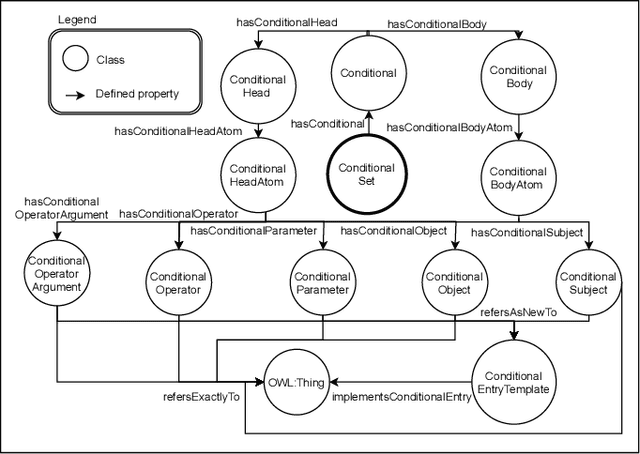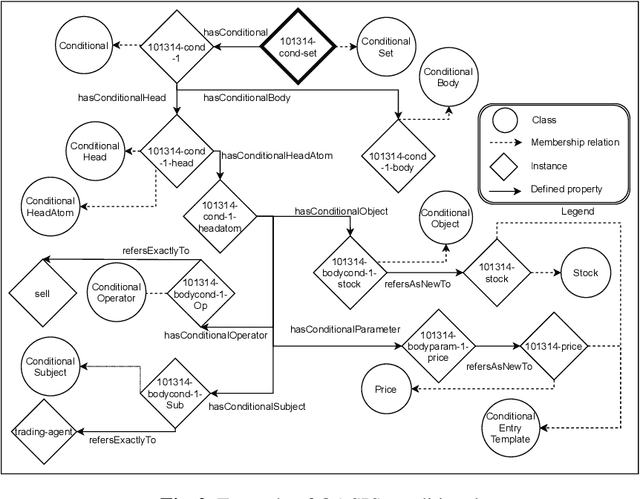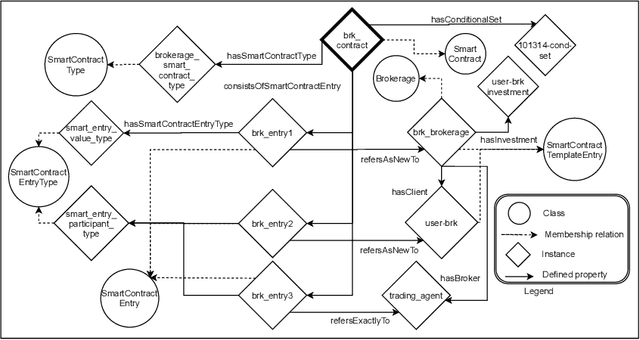Carmelo Fabio Longo
The Ontology for Agents, Systems and Integration of Services: OASIS version 2
Jun 14, 2023



Abstract:Semantic representation is a key enabler for several application domains, and the multi-agent systems realm makes no exception. Among the methods for semantically representing agents, one has been essentially achieved by taking a behaviouristic vision, through which one can describe how they operate and engage with their peers. The approach essentially aims at defining the operational capabilities of agents through the mental states related with the achievement of tasks. The OASIS ontology -- An Ontology for Agent, Systems, and Integration of Services, presented in 2019 -- pursues the behaviouristic approach to deliver a semantic representation system and a communication protocol for agents and their commitments. This paper reports on the main modeling choices concerning the representation of agents in OASIS 2, the latest major upgrade of OASIS, and the achievement reached by the ontology since it was first introduced, in particular in the context of ontologies for blockchains.
* Already published on Intelligenza Artificiale, Vol. 17, no 1, pp. 51-62, 2023. DOI 10.3233/IA-230002
Ontological Smart Contracts in OASIS: Ontology for Agents, Systems, and Integration of Services
Dec 02, 2020



Abstract:In this contribution we extend an ontology for modelling agents and their interactions, called Ontology for Agents, Systems, and Integration of Services (in short, OASIS), with conditionals and ontological smart contracts (in short, OSCs). OSCs are ontological representations of smart contracts that allow to establish responsibilities and authorizations among agents and set agreements, whereas conditionals allow one to restrict and limit agent interactions, define activation mechanisms that trigger agent actions, and define constraints and contract terms on OSCs. Conditionals and OSCs, as defined in OASIS, are applied to extend with ontological capabilities digital public ledgers such as the blockchain and smart contracts implemented on it. We will also sketch the architecture of a framework based on the OASIS definition of OSCs that exploits the Ethereum platform and the Interplanetary File System.
* This work has been accepted for publication at The 14th International Symposium on Intelligent Distributed Computing, 21--23 September 2020, Scilla, Reggio Calabria, Italy. Proceedings and conference have been postponed to September 2021. Paper accepted on 8 September 2020
 Add to Chrome
Add to Chrome Add to Firefox
Add to Firefox Add to Edge
Add to Edge